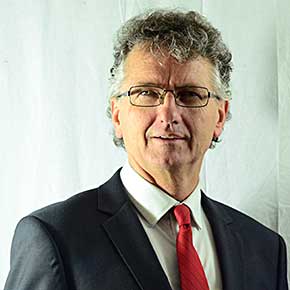Stunned by the Breadth of Expertise at an Idea Rally
Interview with IdeaConnection problem solver Ian Watkins. By Paul Arnold
IdeaConnection problem solver Ian Watkins is a serial inventor with a raft of innovations to his name such as pumps powered from a variety of energy sources, humane pest control equipment and an improved performance turbocharger for the internal combustion engine. He is also the Managing Director of Adreeme Pty Ltd, where he is commercializing an energy management system for industry-scale, intensive electricity users.
Earlier this year he joined around 90 other participants for the Matrix Release Idea Rally. Their task was to come up with novel ideas to improve the release of a low molecular weight, hydrophobic volatile compound embedded in a matrix composed of multiple materials. Ian was one of the participants to receive a financial award from the seeker.
In this interview, he discusses life as an inventor and his participation in the rally.
 There was very little information at the beginning but I was interested in the rally because I had chemical skills and I'm pretty widely inventive so I thought it would be an interesting challenge.
There was very little information at the beginning but I was interested in the rally because I had chemical skills and I'm pretty widely inventive so I thought it would be an interesting challenge. Did the seeker’s needs become clearer during the rally?
I think the seeker wanted to be vague about what they were doing and presented a basic problem. I found it hard to get a good picture of what they wanted until one of the other participants very early on suggested a possible idea of what they were talking about. Then it made sense and so with that as a basis I was able to work out a model of what was going on and made proposals for how to solve it.
Why do you think the problem description was vague at the beginning?
I think they could see there could be applications in many areas not just their own. They may have thought they would get answers to their specific problem and possibly information or solutions for other problems. And they could always disclose more later.
So what I did was to actually ask them specifically for more information about one particular aspect because it affected my model. I presented a model and then asked the question about a detail and they gave me the information I needed. They were happy to give a little bit more information because they could probably see why I needed it. I was able to refine the model and give them a better answer.
How involved were you in the rally?
I was working on it every day. I spent more time than I anticipated but that was probably because I thought that my model was a viable model which solved their problem. So I had enthusiasm for it.
Do you think an Idea Rally is a good way of solving problems and innovating?
I think it is hugely beneficial for the seeker. The breadth of expertise was extraordinary. I was stunned. The seeker received a huge amount of information from people who were knowledgeable in many areas. It was a very valuable response.
Leaving aside the possibility of a financial award is an Idea Rally also beneficial to solvers such as yourself?
I think it was interesting from an intellectual perspective to see some information from other people's areas. It gave me some extra depth in an area and I actually came up with a potential invention which was in a related field. So that was an unexpected benefit.
I also enjoyed the comradery of the group. There was a young person from Nigeria and he and I linked up via this Idea Rally and we got to make a good personal connection. I also encouraged the community spirit of people working together. There were several who collaborated and contributed ideas as part of a group. It was a good feeling to be connected with people from all over the world that you might not otherwise have met.
What draws you to inventing? Is it more than just a way to make a living?
I think I've got a background that is ideally suited to inventing. That’s because often with inventing it's not just about having deep knowledge in one field. You can have that and that's what happens in universities and research institutions all the time. With deep knowledge in one field, you can make advances. However, I've got the ability to make advances in a wide range of fields.
I can't do the depth especially when it comes to the technical equipment you need to do research. But because of the breadth of my understanding, my technical nous, experience and training I can put together information from many different areas that can lead to inventions that other people have not made because they don’t have the experience of multiple areas. Also, I make models in my head.
Do you invent on your own or in collaboration with others?
It is a bit of both. I’ve got inventions that I have pursued and pursue personally and I’ve got a company with an inventor friend. We pursue joint inventions as well. I'm very good at brainstorming by myself but inputs from others can still help. With the company, my business partner has more experience as a businessperson and so he uses that for commercialization.
Are people more creative alone or together?
I think people are much more creative together absolutely because you can’t just think of everything. With other people, their comments and ideas can lead you off into other areas. So brainstorming with multiple people is definitely advantageous.
